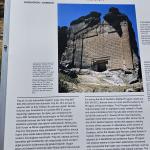Years ago, when I was at Messenger College a visiting preacher spoke at our chapel. He raised this topic. He believed that speaking in tongues in Acts 2 is a sign to the Apostles that Jesus is seated at the right hand of the Father.
Of course, he believed in the fact that speaking in tongues is the initial sign for the baptism of the Holy Spirit. However, he believed it was more, at least in Acts 2.
John’s witness
The preacher drew heavily upon the Gospel of John. Jesus talks about the Holy Spirit, particularly in chapters 14-16.
Jesus repeatedly tries to explain what is going to happen with the Holy Spirit that is so special. First, Jesus is going to go to the Father. Then He is going to send the Holy Spirit upon the Apostles.
Jesus will ascend and take His place with the Father. Then He will send the Holy Spirit in a new way.
This new way of being with Holy Ghost is so spectacular and revelatory, that it is nothing short of a relationship. Jesus is sending the Holy Ghost in a new way to be close to the Disciples in ways that Jesus Himself is close to the Disciples.
salvation
This does not preclude John 20 when Jesus shows up to the Disciples after the resurrection. He breathes on them and tells them to receive the Holy Ghost. In a very real way, the Holy Ghost is imparted to them and salvation begins. However, there is a marked change in the Disciples after the day of Pentecost, after they speak in tongues. Is it just because they speak in tongues?
Remember the order of events. Jesus would have to ascend first. He would have to take His place with the Father. Then He would send the Holy Spirit.
What happens in John 20 is real. However, Jesus had not yet ascended to the Father. So there must be a second blessing, and it occurs in Acts 2.
To read more about John 20 and Acts 2, check out my brief article Subsequence and Pentecost CLICK
Acts
This small band of 120 Christ followers suddenly burst out of the upper room, suddenly burst out of hiding, and start boldly proclaiming the Word of God in other languages. Then Peter preaches as good of a sermon as can be found in the New Testament.
What is different?
Could it be the assurance that Jesus has made it?
Could it be the assurance that all has been made right again?
Could it be the assurance that Jesus is sitting at the right hand of the Father in glory?
Why is it so important that Stephen sees Jesus at the right hand of God in Acts 7? It only means blasphemy to the nonbelievers. But to the Christians, it is the assurance that Jesus is on the throne, despite the circumstances.
Could it be that speaking in tongues is more than just the initial sign and evidence of the Baptism of the Holy Spirit?
Is it possible that speaking in tongues is a direct evidence that Christ is on the throne and that we are receiving a second blessing, downloaded directly from the throneroom of God?
















